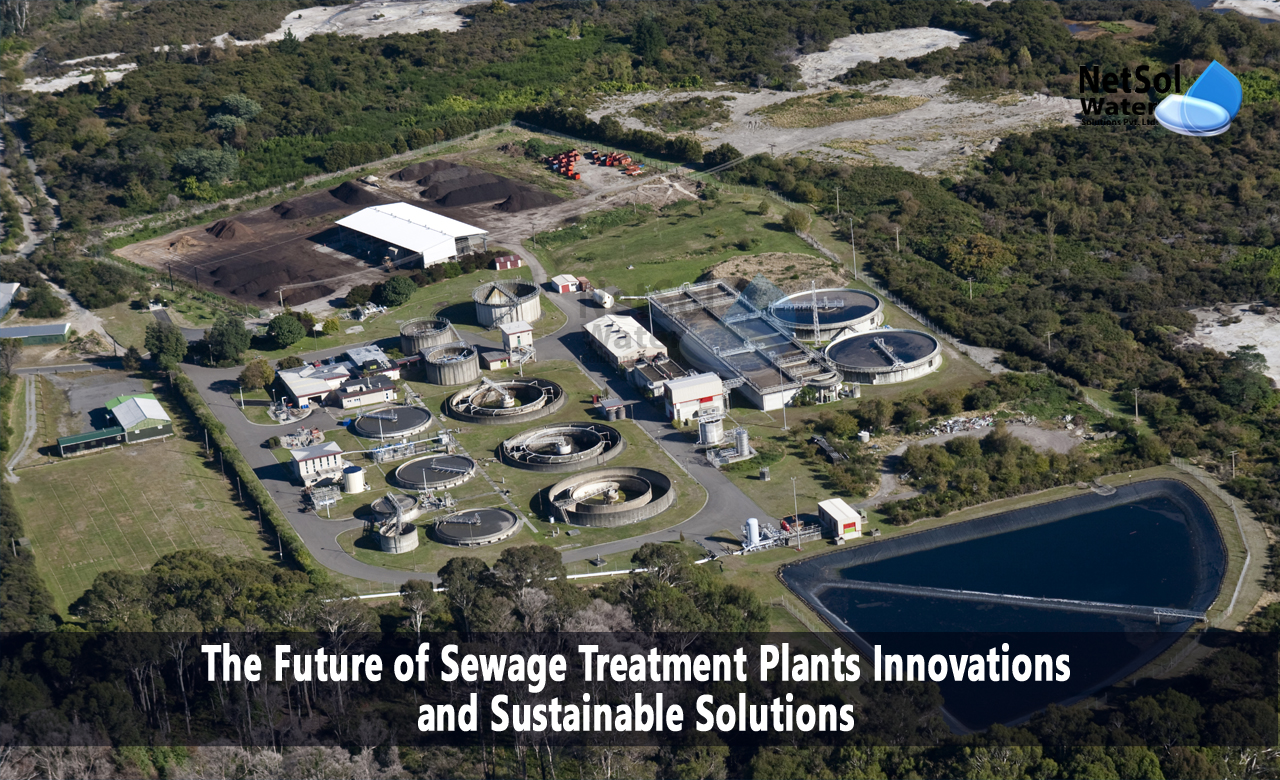What is the Future of STP Plants Innovations and Sustainable Solutions?
Sewage treatment plants play a critical role in protecting public health and preserving the environment by treating and purifying wastewater. As we look to the future, the need for innovative and sustainable solutions in sewage treatment becomes increasingly evident. Advancements in technology, changing environmental regulations, and the growing demand for resource efficiency are driving a transformation in the way we approach wastewater management.
In this blog post, we will explore the future of sewage treatment plants, focusing on the exciting innovations and sustainable solutions that are shaping the industry.
Smart and Efficient Treatment Processes:
The future of sewage treatment plants lies in intelligent and data-driven systems. Advanced monitoring and control technologies, such as real-time sensors, artificial intelligence, and machine learning, enable optimized process control, predictive maintenance, and early detection of issues. These innovations enhance treatment efficiency, reduce energy consumption, and minimize operational costs. Smart treatment processes can also adapt to varying influent conditions, ensuring consistent performance and maximizing resource recovery.
Resource Recovery and Circular Economy:
Sewage treatment plants of the future will emphasize resource recovery and the circular economy principles. Innovative technologies will enable the extraction of valuable resources, such as nutrients, energy, and water, from wastewater. Nutrient-rich biosolids can be transformed into high-quality fertilizers or used for biogas production. Energy generated from anaerobic digestion or thermal processes can be utilized for plant operations or fed back into the grid. Water reuse and recycling systems will become more widespread, reducing reliance on freshwater sources and promoting sustainable water management.
Decentralized and Modular Systems:
Decentralized sewage treatment plants offer a promising future for regions with limited infrastructure or remote areas. These compact and modular systems can be deployed closer to the source of wastewater generation, minimizing the need for extensive pipeline networks. Decentralized plants facilitate localized treatment, reduce transmission losses, and enhance overall system resilience. Moreover, these systems can accommodate varying scales of wastewater treatment, making them adaptable to diverse community needs.
Green and Nature-Based Solutions:
The future of sewage treatment plants will integrate green and nature-based solutions into the treatment process. Constructed wetlands, natural filtration systems, and eco-friendly biofilters will be employed to enhance treatment efficiency and mimic natural purification processes. These nature-based solutions not only provide effective treatment but also create habitats for biodiversity, improve aesthetics, and enhance the overall ecological balance of treatment facilities.
Energy Efficiency and Renewable Energy Integration:
Sewage treatment plants will continue to prioritize energy efficiency and renewable energy integration. Innovations such as energy-efficient aeration systems, optimized pumping techniques, and advanced anaerobic digestion processes will reduce the energy demand of treatment plants. Additionally, renewable energy sources such as solar panels, wind turbines, and hydropower systems will be integrated into sewage treatment facilities, enabling them to generate their own clean energy and achieve energy self-sufficiency.
Public Engagement and Education:
The future of sewage treatment plants involves greater public engagement and education to foster awareness and participation. Building community understanding of the importance of wastewater treatment, resource recovery, and sustainable practices is crucial. By involving the public in the decision-making process, encouraging water conservation, and promoting responsible wastewater disposal, we can create a culture of environmental stewardship that extends beyond the treatment plant.
Conclusion:
The future of sewage treatment plants is filled with exciting innovations and sustainable solutions. From smart and efficient treatment processes to resource recovery, decentralized systems, green solutions, and renewable energy integration, these advancements will shape the way we manage wastewater and protect our water resources. By embracing these innovations, we can create a more sustainable, resilient, and environmentally conscious future. As technology continues to evolve and environmental challenges persist, sewage treatment plants will play a vital role in safeguarding public health, preserving ecosystems, and promoting a circular economy approach to wastewater management.
Netsol Water is Greater Noida-based leading water & wastewater treatment plant manufacturer. We are industry's most demanding company based on client review and work quality. We are known as best commercial RO plant manufacturers, industrial RO plant manufacturer, sewage treatment plant manufacturer, Water Softener Plant Manufacturers and effluent treatment plant manufacturers. Apart from this 24x7 customer support is our USP. Call on +91-9650608473, or write us at enquiry@netsolwater.com for any support, inquiry or product-purchase related query.



